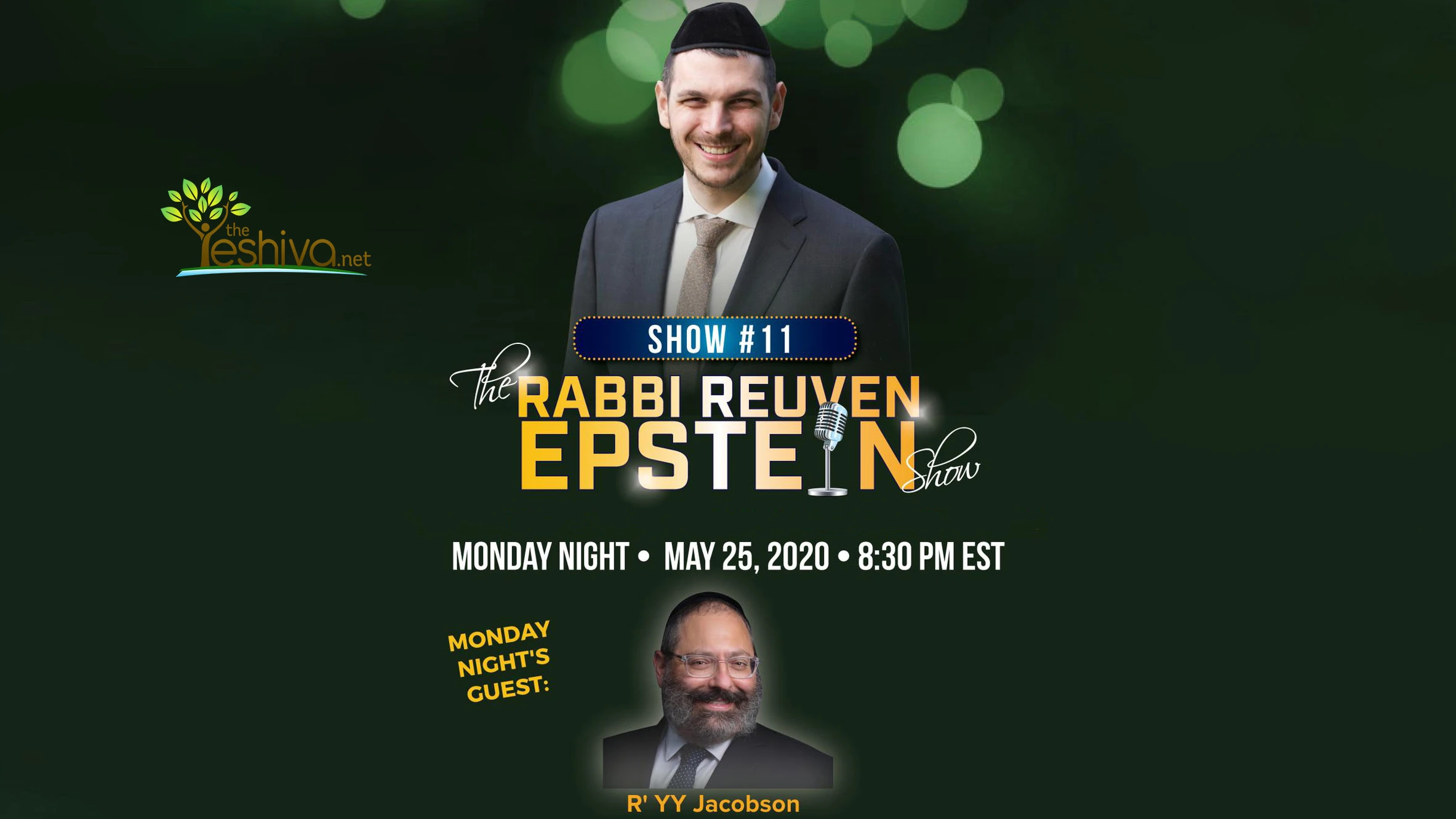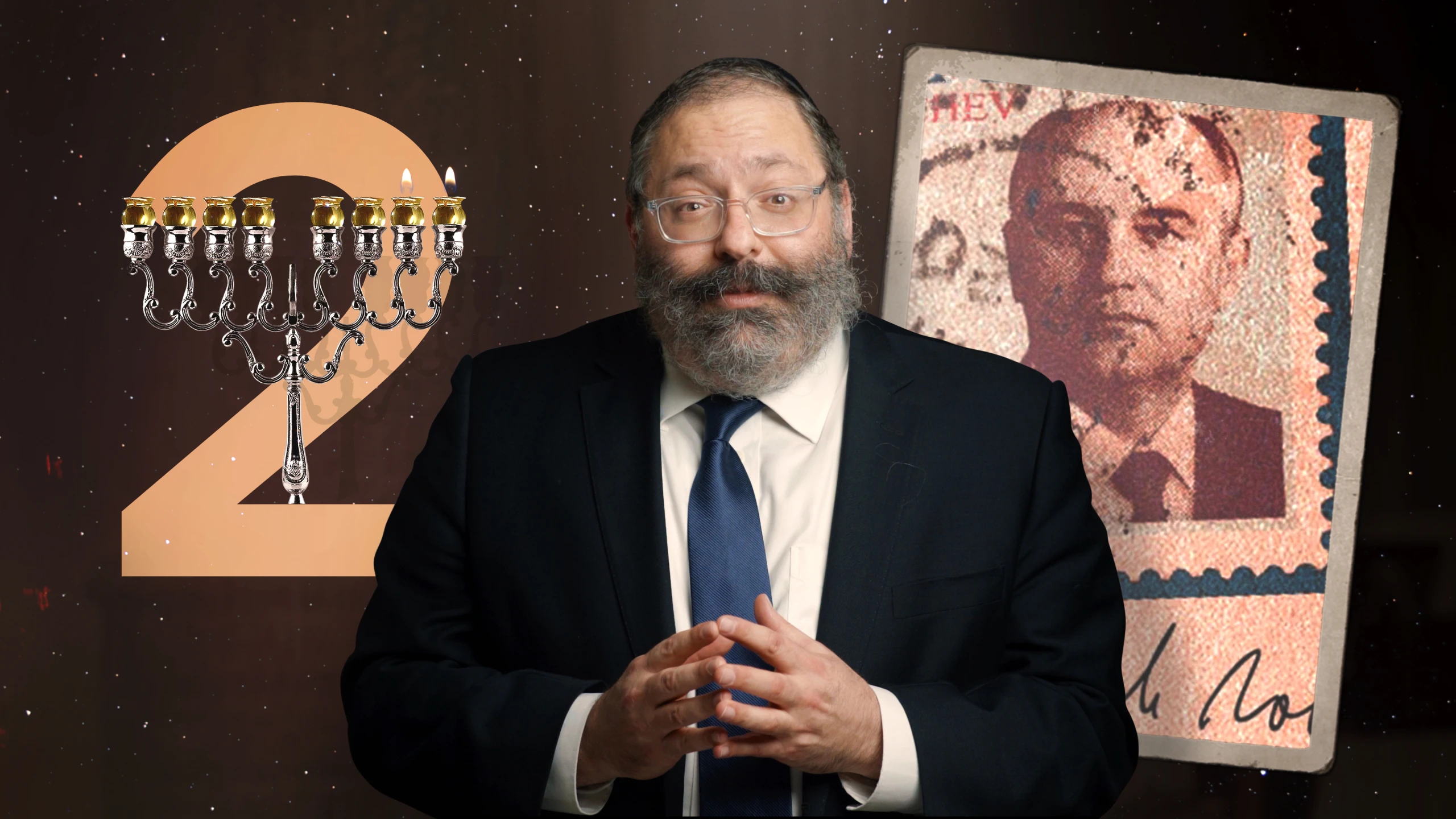An Ode to Diversity
The Art of Leadership
- July 11, 2012
- |
- 21 Tamuz 5772
Rabbi YY Jacobson
2305 views

An Ode to Diversity
The Art of Leadership
Rabbi YY Jacobson
- July 11, 2012
In Search for a Successor
Miriam has died. So has Aaron. G-d tells Moses that his turn is about to come. "Go up this mountain in the Abarim range and see the land I have given the Israelites. After you have seen it, you too will be gathered to your people, as your brother Aaron was. . . [1]."At this dramatic moment, captured in this week's portion (Pinchas), Moses speaks to G-d. "May the Lord, the G-d of the spirits of all mankind, appoint a man over this community to go out and come in before them, one who will lead them out and bring them in, so G-d's people will not be like sheep without a shepherd[2]."
One can only imagine the emotions that engulfed Moses at the time. For more than four decades he had faithfully shepherded the people; with astonishing self-sacrifice he had committed himself completely to the creation and development of the nation of Israel. Now, as he is about to leave the world, he beseeches G-d not to leave the people orphaned. We can be quite certain that Moses' brief words contained far more than what is explicitly reported.
Indeed, this is the "job" of the Midrash, to attune us to the nuanced expressions and intricate intimations within biblical narrative. The Midrash on this passage[3] focuses our attention to the peculiar way in which Moses addresses G-d at this particular encounter: "G-d of the spirits"? What is the significance of this title?
"Just as no two faces are identical," states the Midrash, "no two personalities are identical. Every human being possesses an individual identity… During the time of his death, Moses requested from G-d, saying, 'Master of the universe! You are aware of the distinct personality of every single individual and that no two of your children are alike. When I pass away from them, I beg you, please designate for them a leader who will contain every single one of them according to his individuality… G-d of the spirits! You recognize the individual spirit of each of your creatures, so appoint someone who will know how to walk with each individual according to his spirit.'"
Two Forms of Leadership
This is a remarkable interpretation. Perhaps more than anything else, it captures Judaism's view on the meaning of genuine leadership. Leadership, in all its forms — in the family, in the work place, in schools, organizations, spiritual communes and societies — is not about cloning people to fit the image and disposition of the leader. An authentic leader must embrace, rather than shun, human diversity. To a true leader, the distinctions between people are a positive phenomenon, not a threat. It is rooted in the leader's appreciation of the creator of humanity as "G-d of the spirits," one G-d who created many distinct faces, spirits and hearts, each of them called upon to experience life in a unique and individual fashion.One of the great challenges facing many marriages, communities and societies today is the notion of "My way or no way." Or as a person once remarked: "I am easy to get along with, once you learn to worship me." It's a feeling that the landscape of my emotions and of my religious experience is the only terrain worth treading on. If you think differently, if you have a different path, you must be on the wrong team.
Judaism, on the other hand, declares the oneness of G-d and the plurality of man. The idea that all of us must be the same is foreign to the Judaic ethos. John Lennon's "Imagine," notwithstanding its powerfully luring message, is merely that: a figment of imagination, an abstract fantasy not rooted in reality.
Diversity is sown into the very fabric of existence. No two flakes of snow are alike; no two people are alike[4]. A leader's goal is not to have all of his or her followers look alike, but rather to contain within himself or herself the unique disposition and soul-energy of each individual, guiding them to maximize their own potential, just as the brain guides individual limbs and organs to function according to their particular nature within a larger organism.
This applies to all leadership positions, including, of course, the respective leadership roles of spouses in marriage. The goal in marriage is not to think alike, but to think together. No two individuals think alike, nor should they. A successful marriage is about learning how to contain within your own space the presence of a distinct individual without feeling the need to suppress the spouse's otherness, so that your identity reigns exclusively in the relationship. Like notes in a ballad, each of us represents a unique and distinct note, and together we recreate the symphony, not by singing the same note, but by expressing our individual note as an indispensible part of the song.
Absolutes Vs. Individuality
Yet we have to be committed to the same song. If not, our individual notes can create chaos rather than a melody. The importance of individuality does not mean that every whim and instinct of an individual ought to be sanctioned in the name of individual self-expression. If we wish this world not to be a jungle, we must recognize that G-d, the "G-d of the spirits," created absolute universal standards of morality and ethics that bind all of humanity. To the Jewish people, G-d presented an absolute system of Torah and mitzvos.
Yet this does not compromise the focus of Judaism on individual expression. Within the framework of the moral life and the Torah life, the paths to truth are endless[5], not unlike the same 88 keys of the piano which lend themselves to endless musical combinations. Mozart, Handel, Beethoven, Schubert, Bach and Tchaikovsky did not need to create new keys in order to display their creative genius and musical brilliance.
We, too, need not create or change the moral and Torah law in order to express our individuality. External individualism relies on external and visible changes in order to assert itself. Internal individualism, being in tune to your own inner rhythm, allows you to transform the same old notes into beacons of pulsating creativity.
Moses' plea to G-d to appoint a leader who can contain and embrace diversity constitutes a lesson to us about the quality of leadership we ought to cultivate in our relationships with each of our children, students, employees, and people we have influence on, allowing them to shine in their own beautiful way. We must be leaders to whom people can look to as a source of inspiration through which they can embrace life with their own individuated hug.
[1]Numbers 27:11-12.
[2] Ibid. 15-16.
[3] Midrash Rabah Bamidbar 21:2; 15.
[4]Cf. Mishnah Sanhedrin 37a.
[5] See Tanya: introduction to the book and beginning of ch. 44.
My thanks to Shmuel Levin, a writer and editor in Pittsburgh, for his editorial help.
- Comment
Class Summary:
An Ode to Diversity: The Art of Leadership
Dedicated in the memory of Harav Akiva ben HaRav Avraham Binyamin Zilberberg, in honor of his yartzeit, 23 Tamuz.
In Search for a Successor
Miriam has died. So has Aaron. G-d tells Moses that his turn is about to come. "Go up this mountain in the Abarim range and see the land I have given the Israelites. After you have seen it, you too will be gathered to your people, as your brother Aaron was. . . [1]."
At this dramatic moment, captured in this week's portion (Pinchas), Moses speaks to G-d. "May the Lord, the G-d of the spirits of all mankind, appoint a man over this community to go out and come in before them, one who will lead them out and bring them in, so G-d's people will not be like sheep without a shepherd[2]."
One can only imagine the emotions that engulfed Moses at the time. For more than four decades he had faithfully shepherded the people; with astonishing self-sacrifice he had committed himself completely to the creation and development of the nation of Israel. Now, as he is about to leave the world, he beseeches G-d not to leave the people orphaned. We can be quite certain that Moses' brief words contained far more than what is explicitly reported.
Indeed, this is the "job" of the Midrash, to attune us to the nuanced expressions and intricate intimations within biblical narrative. The Midrash on this passage[3] focuses our attention to the peculiar way in which Moses addresses G-d at this particular encounter: "G-d of the spirits"? What is the significance of this title?
"Just as no two faces are identical," states the Midrash, "no two personalities are identical. Every human being possesses an individual identity… During the time of his death, Moses requested from G-d, saying, 'Master of the universe! You are aware of the distinct personality of every single individual and that no two of your children are alike. When I pass away from them, I beg you, please designate for them a leader who will contain every single one of them according to his individuality… G-d of the spirits! You recognize the individual spirit of each of your creatures, so appoint someone who will know how to walk with each individual according to his spirit.'"
Two Forms of Leadership
This is a remarkable interpretation. Perhaps more than anything else, it captures Judaism's view on the meaning of genuine leadership. Leadership, in all its forms — in the family, in the work place, in schools, organizations, spiritual communes and societies — is not about cloning people to fit the image and disposition of the leader. An authentic leader must embrace, rather than shun, human diversity. To a true leader, the distinctions between people are a positive phenomenon, not a threat. It is rooted in the leader's appreciation of the creator of humanity as "G-d of the spirits," one G-d who created many distinct faces, spirits and hearts, each of them called upon to experience life in a unique and individual fashion.
One of the great challenges facing many marriages, communities and societies today is the notion of "My way or no way." Or as a person once remarked: "I am easy to get along with, once you learn to worship me." It's a feeling that the landscape of my emotions and of my religious experience is the only terrain worth treading on. If you think differently, if you have a different path, you must be on the wrong team.
Judaism, on the other hand, declares the oneness of G-d and the plurality of man. The idea that all of us must be the same is foreign to the Judaic ethos. John Lennon's "Imagine," notwithstanding its powerfully luring message, is merely that: a figment of imagination, an abstract fantasy not rooted in reality.
Diversity is sown into the very fabric of existence. No two flakes of snow are alike; no two people are alike[4]. A leader's goal is not to have all of his or her followers look alike, but rather to contain within himself or herself the unique disposition and soul-energy of each individual, guiding them to maximize their own potential, just as the brain guides individual limbs and organs to function according to their particular nature within a larger organism.
This applies to all leadership positions, including, of course, the respective leadership roles of spouses in marriage. The goal in marriage is not to think alike, but to think together. No two individuals think alike, nor should they. A successful marriage is about learning how to contain within your own space the presence of a distinct individual without feeling the need to suppress the spouse's otherness, so that your identity reigns exclusively in the relationship. Like notes in a ballad, each of us represents a unique and distinct note, and together we recreate the symphony, not by singing the same note, but by expressing our individual note as an indispensible part of the song.
Absolutes Vs. Individuality
Yet we have to be committed to the same song. If not, our individual notes can create chaos rather than a melody. The importance of individuality does not mean that every whim and instinct of an individual ought to be sanctioned in the name of individual self-expression. If we wish this world not to be a jungle, we must recognize that G-d, the "G-d of the spirits," created absolute universal standards of morality and ethics that bind all of humanity. To the Jewish people, G-d presented an absolute system of Torah and mitzvos.
Yet this does not compromise the focus of Judaism on individual expression. Within the framework of the moral life and the Torah life, the paths to truth are endless[5], not unlike the same 88 keys of the piano which lend themselves to endless musical combinations. Mozart, Handel, Beethoven, Schubert, Bach and Tchaikovsky did not need to create new keys in order to display their creative genius and musical brilliance.
We, too, need not create or change the moral and Torah law in order to express our individuality. External individualism relies on external and visible changes in order to assert itself. Internal individualism, being in tune to your own inner rhythm, allows you to transform the same old notes into beacons of pulsating creativity.
Moses' plea to G-d to appoint a leader who can contain and embrace diversity constitutes a lesson to us about the quality of leadership we ought to cultivate in our relationships with each of our children, students, employees, and people we have influence on, allowing them to shine in their own beautiful way. We must be leaders to whom people can look to as a source of inspiration through which they can embrace life with their own individuated hug.
[1]Numbers 27:11-12.
[2] Ibid. 15-16.
[3] Midrash Rabah Bamidbar 21:2; 15.
[4]Cf. Mishnah Sanhedrin 37a.
[5] See Tanya: introduction to the book and beginning of ch. 44.
My thanks to Shmuel Levin, a writer and editor in Pittsburgh, for his editorial help.
Tags
Categories
Essay Parshas Pinchas
Rabbi YY Jacobson
- July 11, 2012
- |
- 21 Tamuz 5772
- |
- 2305 views

An Ode to Diversity
The Art of Leadership
Rabbi YY Jacobson
- July 11, 2012
In Search for a Successor
Miriam has died. So has Aaron. G-d tells Moses that his turn is about to come. "Go up this mountain in the Abarim range and see the land I have given the Israelites. After you have seen it, you too will be gathered to your people, as your brother Aaron was. . . [1]."At this dramatic moment, captured in this week's portion (Pinchas), Moses speaks to G-d. "May the Lord, the G-d of the spirits of all mankind, appoint a man over this community to go out and come in before them, one who will lead them out and bring them in, so G-d's people will not be like sheep without a shepherd[2]."
One can only imagine the emotions that engulfed Moses at the time. For more than four decades he had faithfully shepherded the people; with astonishing self-sacrifice he had committed himself completely to the creation and development of the nation of Israel. Now, as he is about to leave the world, he beseeches G-d not to leave the people orphaned. We can be quite certain that Moses' brief words contained far more than what is explicitly reported.
Indeed, this is the "job" of the Midrash, to attune us to the nuanced expressions and intricate intimations within biblical narrative. The Midrash on this passage[3] focuses our attention to the peculiar way in which Moses addresses G-d at this particular encounter: "G-d of the spirits"? What is the significance of this title?
"Just as no two faces are identical," states the Midrash, "no two personalities are identical. Every human being possesses an individual identity… During the time of his death, Moses requested from G-d, saying, 'Master of the universe! You are aware of the distinct personality of every single individual and that no two of your children are alike. When I pass away from them, I beg you, please designate for them a leader who will contain every single one of them according to his individuality… G-d of the spirits! You recognize the individual spirit of each of your creatures, so appoint someone who will know how to walk with each individual according to his spirit.'"
Two Forms of Leadership
This is a remarkable interpretation. Perhaps more than anything else, it captures Judaism's view on the meaning of genuine leadership. Leadership, in all its forms — in the family, in the work place, in schools, organizations, spiritual communes and societies — is not about cloning people to fit the image and disposition of the leader. An authentic leader must embrace, rather than shun, human diversity. To a true leader, the distinctions between people are a positive phenomenon, not a threat. It is rooted in the leader's appreciation of the creator of humanity as "G-d of the spirits," one G-d who created many distinct faces, spirits and hearts, each of them called upon to experience life in a unique and individual fashion.One of the great challenges facing many marriages, communities and societies today is the notion of "My way or no way." Or as a person once remarked: "I am easy to get along with, once you learn to worship me." It's a feeling that the landscape of my emotions and of my religious experience is the only terrain worth treading on. If you think differently, if you have a different path, you must be on the wrong team.
Judaism, on the other hand, declares the oneness of G-d and the plurality of man. The idea that all of us must be the same is foreign to the Judaic ethos. John Lennon's "Imagine," notwithstanding its powerfully luring message, is merely that: a figment of imagination, an abstract fantasy not rooted in reality.
Diversity is sown into the very fabric of existence. No two flakes of snow are alike; no two people are alike[4]. A leader's goal is not to have all of his or her followers look alike, but rather to contain within himself or herself the unique disposition and soul-energy of each individual, guiding them to maximize their own potential, just as the brain guides individual limbs and organs to function according to their particular nature within a larger organism.
This applies to all leadership positions, including, of course, the respective leadership roles of spouses in marriage. The goal in marriage is not to think alike, but to think together. No two individuals think alike, nor should they. A successful marriage is about learning how to contain within your own space the presence of a distinct individual without feeling the need to suppress the spouse's otherness, so that your identity reigns exclusively in the relationship. Like notes in a ballad, each of us represents a unique and distinct note, and together we recreate the symphony, not by singing the same note, but by expressing our individual note as an indispensible part of the song.
Absolutes Vs. Individuality
Yet we have to be committed to the same song. If not, our individual notes can create chaos rather than a melody. The importance of individuality does not mean that every whim and instinct of an individual ought to be sanctioned in the name of individual self-expression. If we wish this world not to be a jungle, we must recognize that G-d, the "G-d of the spirits," created absolute universal standards of morality and ethics that bind all of humanity. To the Jewish people, G-d presented an absolute system of Torah and mitzvos.
Yet this does not compromise the focus of Judaism on individual expression. Within the framework of the moral life and the Torah life, the paths to truth are endless[5], not unlike the same 88 keys of the piano which lend themselves to endless musical combinations. Mozart, Handel, Beethoven, Schubert, Bach and Tchaikovsky did not need to create new keys in order to display their creative genius and musical brilliance.
We, too, need not create or change the moral and Torah law in order to express our individuality. External individualism relies on external and visible changes in order to assert itself. Internal individualism, being in tune to your own inner rhythm, allows you to transform the same old notes into beacons of pulsating creativity.
Moses' plea to G-d to appoint a leader who can contain and embrace diversity constitutes a lesson to us about the quality of leadership we ought to cultivate in our relationships with each of our children, students, employees, and people we have influence on, allowing them to shine in their own beautiful way. We must be leaders to whom people can look to as a source of inspiration through which they can embrace life with their own individuated hug.
[1]Numbers 27:11-12.
[2] Ibid. 15-16.
[3] Midrash Rabah Bamidbar 21:2; 15.
[4]Cf. Mishnah Sanhedrin 37a.
[5] See Tanya: introduction to the book and beginning of ch. 44.
My thanks to Shmuel Levin, a writer and editor in Pittsburgh, for his editorial help.
- Comment
Dedicated in the memory of Harav Akiva ben HaRav Avraham Binyamin Zilberberg, in honor of his yartzeit, 23 Tamuz.
Class Summary:
An Ode to Diversity: The Art of Leadership
Related Classes
Please help us continue our work
Sign up to receive latest content by Rabbi YY
Join our WhatsApp Community
Join our WhatsApp Community















Please leave your comment below!